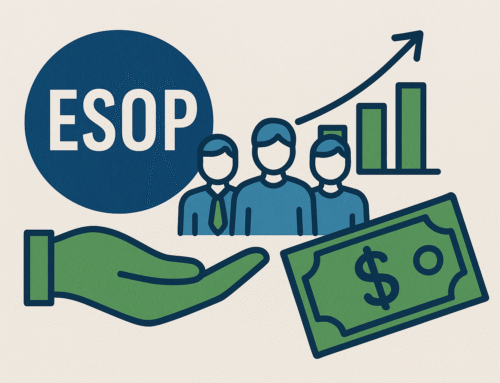Slovenia has taken a major step toward promoting shared prosperity and long-term economic
resilience by introducing legislation that incorporates core elements of the Employee Stock
Ownership Plan (ESOP) model into its legal system. The Vlada Republike Slovenije (Government
of the Republic of Slovenia) recently approved the draft of the Employee Ownership
Cooperative Act, establishing a formal, systemic framework that enables voluntary employee
participation in company ownership. This move represents a significant policy shift in Central
Europe, aligning Slovenia with a growing global movement to empower workers and strengthen
business sustainability.
Slovenia now joins the ranks of early adopters such as the UK and the US, both of which have
introduced supportive legislative measures in to foster employee ownership. There has been
over five decades of ESOP success in the United States, where employee ownership has long
been linked to increased productivity, stronger retirement security, and improved business
performance. The United Kingdom adopted its own dedicated framework in 2014, followed by
Canada in 2023, signaling a growing international consensus on the benefits of employee-
owned enterprise models.
At the heart of this movement is a recognition that employee ownership not only enhances
economic equity but also contributes to greater resilience in times of crisis. International data
continues to show that employee-owned firms outperform traditional business models in terms
of long-term growth, stability, and employee satisfaction. By embedding mechanisms for
voluntary ownership transfers, Slovenia’s new legislation aims to foster a more inclusive and
participatory corporate environment, encouraging employees to think and act like owners.
These legislative changes are not emerging in isolation. The annual Oxford Employee
Ownership Symposium hosted in partnership with The Employee Ownership Foundation and
the Center on Business and Poverty, has become a global hub for policy dialogue, research
exchange, and strategy development around employee ownership. The conference has been
instrumental in shaping ESOP-related reforms in numerous countries seeking sustainable
business models. Thought leaders, government officials, academics, and practitioners gather
each year in Oxford to share case studies, explore legal frameworks, and discuss the socio-
economic impact of ownership transitions.
Slovenia’s new ESOP initiative has already attracted international interest. The country’s
approach will be featured at the upcoming Oxford Employee Ownership Symposium 2025,
where Slovenian delegates will share their legislative journey and join discussions alongside
colleagues from Denmark, the UK, and other forward-looking nations. This reflects Slovenia’s
increasing leadership in shaping European employee ownership policy and its commitment to
inclusive economic reform.
As more countries examine ways to bridge income gaps, increase worker engagement, and
support business continuity, ESOP legislation is emerging as a powerful policy tool. Slovenia’s
move, informed in part by global best practices and reinforced through platforms like the
Oxford symposium, demonstrates how international collaboration can spur innovative legal
reform. If the momentum continues, employee ownership could become a cornerstone of a
more equitable global economy.






